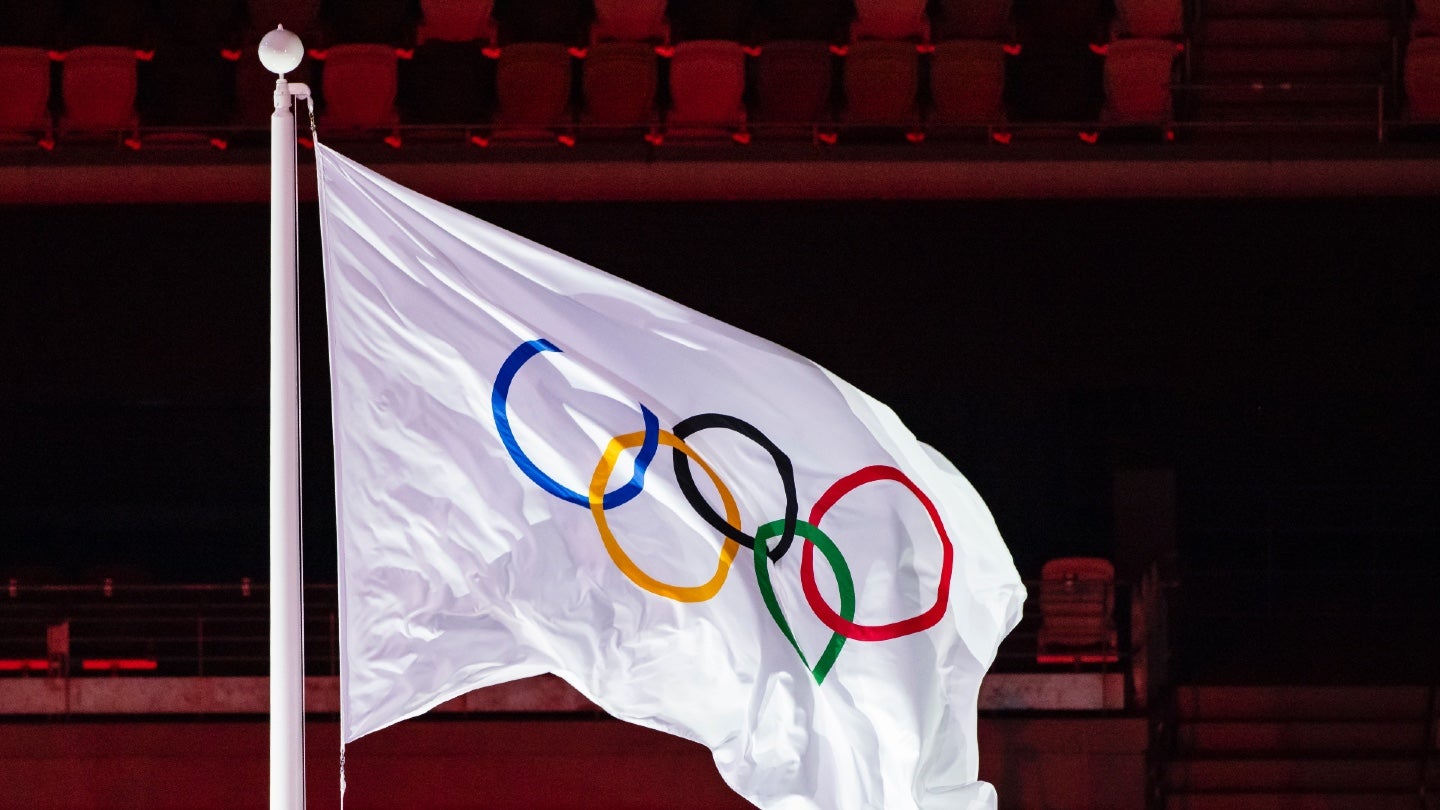
The International Olympic Committee (IOC) has responded to the UK government’s call for sponsors to support a ban on Russian and Belarusian athletes at the Paris 2024 Olympics, saying “the autonomy of sport” should be respected.
This statement comes after Lucy Frazer, the UK’s culture secretary, wrote a letter to the 13 UK chief executives of the IOC’s major worldwide partners, in which she said that regimes “must not be allowed to use sport for their propaganda purposes.”
Frazer chaired a summit of representatives from 36 countries last month, which resulted in a joint statement pledging support for ongoing sanctions against Russia and Belarus, as a result of Russia's invasion of Ukraine early last year.
In the immediate aftermath of the invasion, the IOC called on the various international sports federations to exclude athletes from both countries from competitions for the foreseeable future, but the body is now assessing their potential reintegration at Paris 2024.
In response, the IOC said in a statement yesterday (March 13): “It is not up to governments to decide which athletes can participate in which international competitions.
“This would be the end of world sport as we know it today.”
The governing body added: “It must be the sole responsibility of sports organizations to decide which athletes can take part in international competitions based exclusively on their sporting merit. In accordance with this, Olympic sponsors are not involved.
“We hope very much that the British government will respect the autonomy of sport.”
This debate comes with the IOC having said in January that it will assess options in terms of Russian and Belarusian athletes competing at Paris 2024. No final decision has yet been made, however, with IOC president Thomas Bach saying at the end of last year that his organization faced “a big dilemma” in making sure that individual athletes do not suffer because of these sporting sanctions.
January saw the IOC set out a potential pathway for Russian and Belarusian athletes to earn places at the Olympics through Asian qualifying formats, before then competing in Paris as neutrals.
Last month, meanwhile, the Olympic body called threats of a Paris 2024 boycott by Ukraine "extremely regrettable."
Neutral athletes are not accompanied by their country’s flag or anthem and are not officially counted as sporting representatives of their nation.
Frazer’s letter to the IOC’s premier commercial partners last month urged them to “join us in pressing the IOC to address the concerns raised.
“We appreciate how important the sponsors are to the games’ successful delivery.
“We know sport and politics in Russia and Belarus are heavily intertwined, and we are determined that the regimes [in those countries] must not be allowed to use sport for their propaganda purposes.”
She added: “As long as our concerns and the substantial lack of clarity and concrete detail on a workable 'neutrality' model are not addressed, we do not agree that Russian and Belarusian athletes should be allowed back into competition.
“Noting the IOC's stated position that no final decisions have been made, we have strongly urged the IOC to address the questions identified by all countries and reconsider its proposal accordingly.”
In terms of Russia’s potential sporting focus switching to Asia, meanwhile, the men’s soccer team has now been invited to compete in this year’s Central Asian Football Association (CAFA) championships.
Russian soccer teams – club and national sides – have been suspended by European soccer’s governing body UEFA since last February.
However, the Tajikistan Football Federation said yesterday that Russia has been invited to the men’s CAFA championships, scheduled to take place between June 9 and 21.
CAFA is a section of the overall Asian Football Confederation (AFC), formed in 2014 and comprising the soccer federations of Afghanistan, Iraq, Kyrgyzstan, Tajikistan, Turkmenistan, and Uzbekistan.
Russian soccer’s governing body, the RFU, has told the state news agency TASS that conditions around the team’s participation in CAFA are now being discussed.
The RFU’s head, Aleksander Dyukov, has previously said that switching from UEFA to the AFC is an option being considered in order for Russian national teams, and clubs, to once again engage in international competition.
Global soccer’s governing body FIFA has, like UEFA, held the RFU in suspension ever since the invasion of Ukraine.



